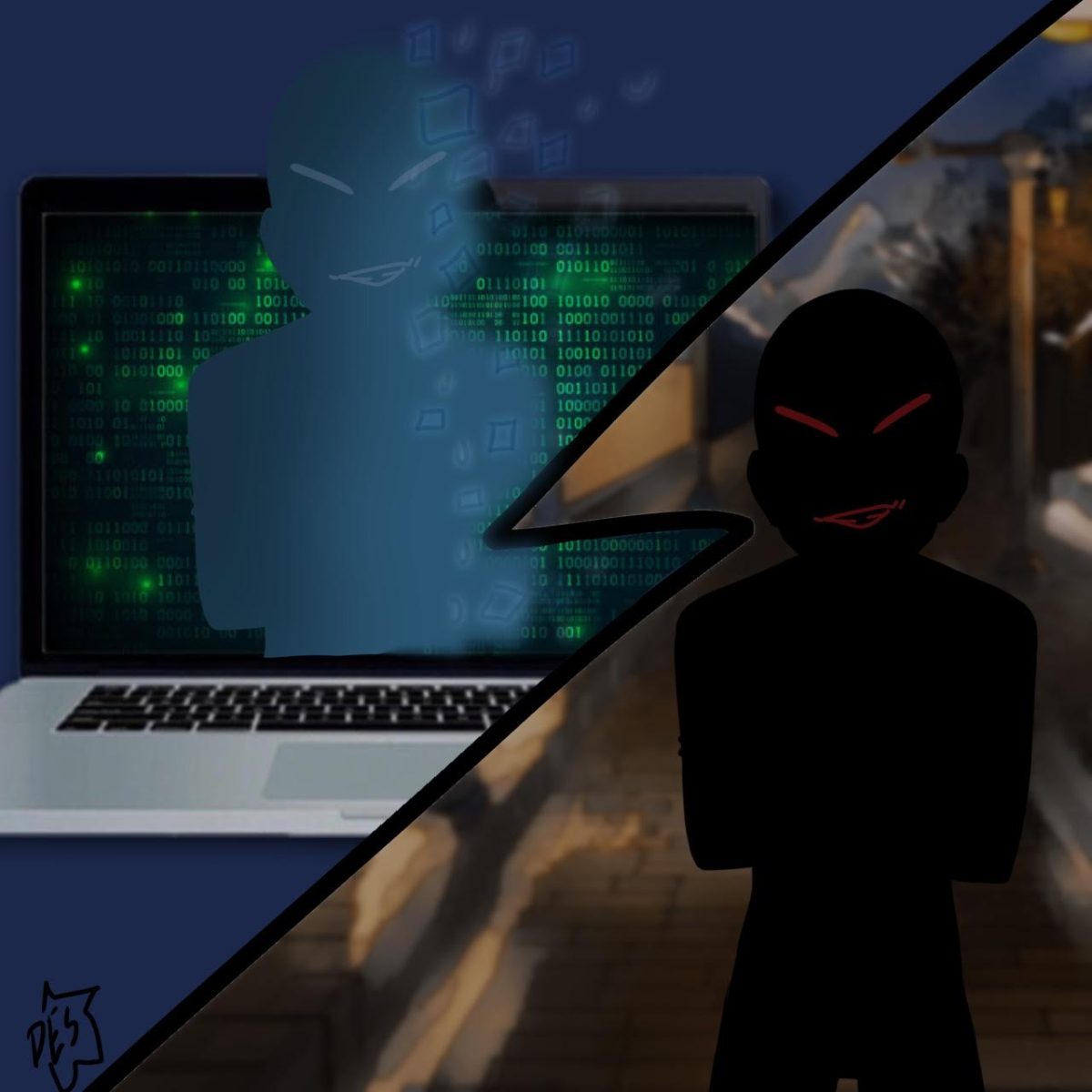In today’s digital age, people face threats that were not possible several years ago. This new category of threats is referred to as cybercrime and affects people across the world due to our increased dependence on computers and the internet for daily tasks and operations. Cybercrime can be described as criminal activities carried out utilizing computers or the internet and is a constantly evolving threat that affects individuals, businesses, and governments on a global scale. Activities such as hacking, phishing, malware attacks, identity theft, and financial fraud can be categorized as cybercrime and can have massive consequences depending on the context of the crime. Despite the lack of physicality in these crimes, I believe that cybercriminals should be punished similarly to those who commit physical crimes because the crimes committed by cybercriminals usually have consequences of a similar, or sometimes even greater, magnitude than those of physical crimes.
On an individual level, people can suffer great losses from cybercrime. An example of this is identity theft, one of the most common forms of cybercrime. Through identity theft, cybercriminals can cause financial losses for victims and ruin their credit and reputation through fraudulent activity. According to Breslow Law Offices, the damage done to victims through financial losses is similar to a robbery, which is punishable by a “term of incarceration ranging from 10 to 20 years”. As of now, the punishment for identity theft is 18 months in prison and a fine of up to $10,000. Comparing it to that of robberies, it seems that the punishment for identity theft should be a much longer period of incarceration, as the severity of identity theft can be as great as that of a first-degree robbery.
On a larger scale, people can suffer from other forms of cybercrime such as ransomware attacks, a type of malware attack that prohibits access to data unless a ransom is paid. A notable example of a ransomware attack is the WannaCry Ransomware Attack in May 2017, a three-day span in which the attackers demanded $600 in bitcoin and told people that their files would be permanently deleted if they didn’t pay. This attack caused $4 billion in losses across 230,000 computers globally. Another example of cybercrime on a grander scale is data breaches, security incidents that result in unauthorized access to confidential information. Microsoft faced a data breach in January 2021 in which 30,000 US businesses and 60,000 organizations in total were compromised due to a series of exploits that went undetected for two months. These impacts on our country’s economy show why it is important to respond to cybercrime similarly to our responses to physical crime, as the effects of cybercrime can be equal to or exceed those of physical crime. They affect people to an extent that is capable of being greater than that of physical crime, as shown by the financial losses of companies like Microsoft, and should be subjected to greater punishment, as these financial losses directly harm employees, investors, and consumers associated with the company.
All types of crime should be addressed equally to maintain consistency in the legal system. In treating cybercrime and physical crime similarly, victims can be assured that criminals are held to the same legal standard, despite the online or offline nature of the offense. This consistency builds public trust in the legal system by proving that everyone is held to the same standards, and will be held accountable for their actions. In addition, this consistency in the legal system would allow the system to adapt to the accelerating technological change in the area of cybercrime. This adaptability is important, as the technology criminals use in illegal activities is constantly evolving and the legal system must find a way to not fall behind the development of cybercrime technology. Through creating this consistency in the legal system, criminals would be punished with comparable punishments associated with the seriousness of their actions’ effects.
Despite the advantages of treating cybercrime similarly to physical crime, a major issue with the similar treatment of these types of crime is the unique nature of cybercrime compared to physical crime. One reason why is that the motivations behind cybercrime can be greatly different than those behind physical crime, as they can involve socio-economic factors, psychological drivers, and technical expertise that is different from physical crime. Some examples of these include the globalization of technological access, as shown by the broad reach of large tech companies such as Google and Apple, and the anonymity that technology provides through things like a VPN. These are all major factors of cybercrime, as shown by the large impact cybercriminals have had while remaining anonymous through the use of their knowledge and resources in large-scale cybercrime activities in recent years. In addition, the punishments set in place for physical crime have stood the same for many years. This would not work with cybercrime as the rapid evolution of technology causes a constant change in cybercrime. Cybercrime, already characterized by its anonymity and global reach, is becoming harder to manage, unlike the punishments for physical crime. Despite this, it is feasible to treat the two types of crime similarly if the punishments are appropriately scaled to the severity of its consequences, and that it would be able to keep up with the ever-changing nature of cybercrime. Through a greater understanding of the actual issues caused by cybercrime, people and judges can make better and more informed decisions based on their knowledge of the scope of the issues presented to them.
Cybercrime has become a major issue for people in the modern world due to the dangers it places on individuals, businesses, and governments. Effectively handling cybercrime can strengthen the security of individuals in a time when our important information and resources are the most vulnerable it has ever been. This is because of the increased access that people have to other people’s private information that comes with a lack of physical barriers to their information, increasing the occurrence and severity of cybercrime. In the past, people didn’t have to worry about the security of their goods, because they had physical control over it and could keep it safe with them or in a secure place. In the modern world, people have to constantly worry about who has access to their financial information, or who could exploit them for data because of the greater access others have to our valuables. By sending a message that criminal activity, despite the form, will be treated with severe consequences, the integrity and security of people can be strengthened, to an extent, through an emphasis on consistency regarding this matter within the legal system.






































